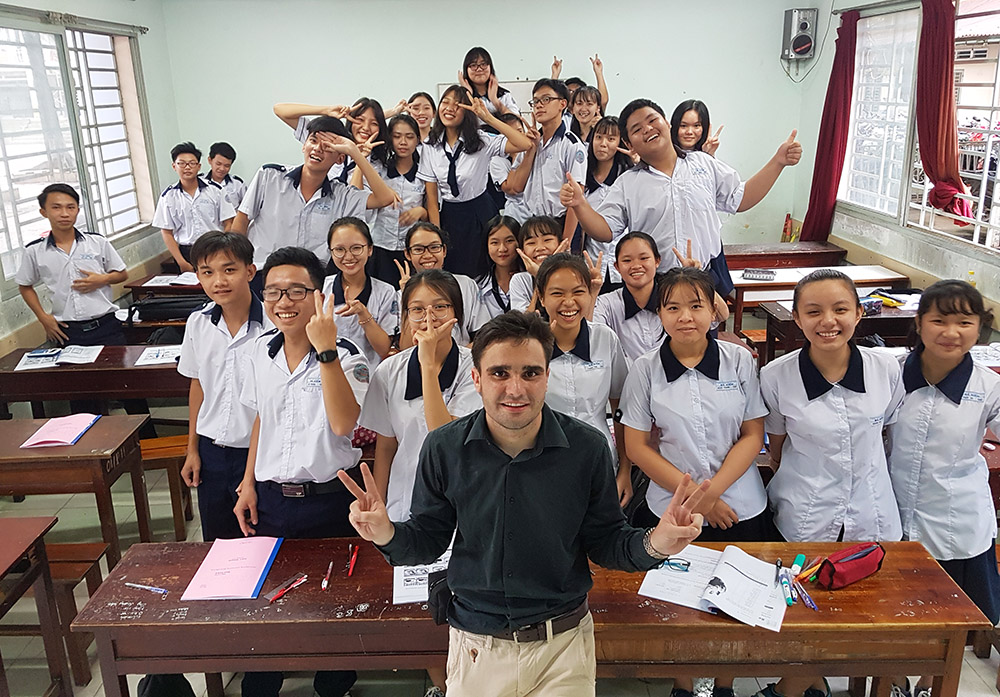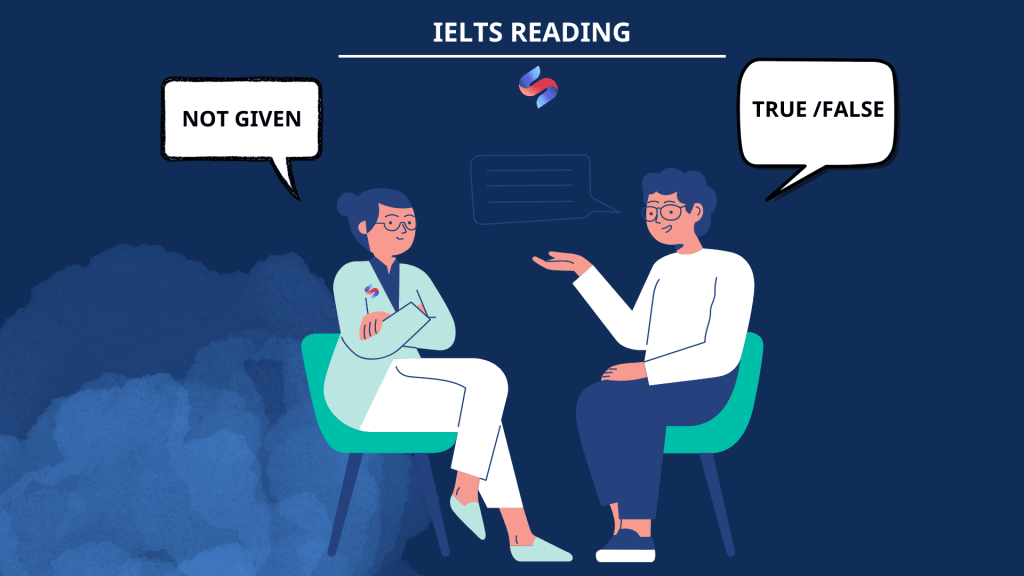Nâng cấp từ vựng – IELTS Vocab Booster 2 – Test 1- READING PASSAGE 3

EDUCATING PSYCHE
Educating Psyche by Bernie Neville is a book which looks at radical new approaches to learning, describing the effects of emotion, imagination and the unconscious on learning. One theory discussed in the book is that proposed by George Lozanov, which focuses on the power of suggestion.
Lozanov’s instructional technique is based on the evidence that the connections made in the brain through unconscious processing (which he calls non-specific mental reactivity) are more durable than those made through conscious processing. Besides the laboratory evidence for this, we know from our experience that we often remember what we have perceived peripherally, long after we have forgotten what we set out to learn. If we think of a book we studied months or years ago, we will find it easier to recall peripheral details – the colour, the binding, the typeface, the table at the library where we sat while studying it – than the content on which we were concentrating. If we think of a lecture we listened to with great concentration, we will recall the lecturer’s appearance and mannerisms, our place in the auditorium, the failure of the air-conditioning, much more easily than the ideas we went to learn. Even if these peripheral details are a bit elusive, they come back readily in hypnosis or when we relive the event imaginatively, as in psychodrama. The details of the content of the lecture, on the other hand, seem to have gone forever.
This phenomenon can be partly attributed to the common counterproductive approach to study (making extreme efforts to memorise, tensing muscles, inducing fatigue), but it also simply reflects the way the brain functions. Lozanov therefore made indirect instruction (suggestion) central to his teaching system. In suggestopedia, as he called his method, consciousness is shifted away from the curriculum to focus on something peripheral. The curriculum then becomes peripheral and is dealt with by the reserve capacity of the brain.
The suggestopedic approach to foreign language learning provides a good illustration. In its most recent variant (1980), it consists of the reading of vocabulary and text while the class is listening to music. The first session is in two parts. In the first part, the music is classical (Mozart, Beethoven, Brahms) and the teacher reads the text slowly and solemnly, with attention to the dynamics of the music. The students follow the text in their books. This is followed by several minutes of silence. In the second part, they listen to baroque music (Bach, Corelli, Handel) while the teacher reads the text in a normal speaking voice. During this time they have their books closed. During the whole of this session, their attention is passive; they listen to the music but make no attempt to learn the material.
Beforehand, the students have been carefully prepared for the language learning experience. Through meeting with the staff and satisfied students they develop the expectation that learning will be easy and pleasant and that they will successfully learn
several hundred words of the foreign language during the class. In a preliminary talk, the teacher introduces them to the material to be covered, but does not ‘teach’ it. Likewise, the students are instructed not to try to learn it during this introduction.
Some hours after the two-part session, there is a follow-up class at which the students are stimulated to recall the material presented. Once again the approach is indirect. The students do not focus their attention on trying to remember the vocabulary, but focus on using the language to communicate (e.g. through games or improvised dramatisations). Such methods are not unusual in language teaching. What is distinctive in the suggestopedic method is that they are devoted entirely to assisting recall. The ‘learning’ of the material is assumed to be automatic and effortless, accomplished while listening to music. The teacher’s task is to assist the students to apply what they have learned paraconsciously, and in doing so to make it easily accessible to consciousness. Another difference from conventional teaching is the evidence that students can regularly learn 1000 new words of a foreign language during a suggestopedic session, as well as grammar and idiom.
Lozanov experimented with teaching by direct suggestion during sleep, hypnosis and trance states, but found such procedures unnecessary. Hypnosis, yoga, Silva mind-control, religious ceremonies and faith healing are all associated with successful suggestion, but none of their techniques seem to be essential to it. Such rituals may be seen as placebos. Lozanov acknowledges that the ritual surrounding suggestion in his own system is also a placebo, but maintains that without such a placebo people are unable or afraid to tap the reserve capacity of their brains. Like any placebo, it must be dispensed with authority to be effective. Just as a doctor calls on the full power of autocratic suggestion by insisting that the patient take precisely this white capsule precisely three times a day before meals, Lozanov is categoric in insisting that the suggestopedic session be conducted exactly in the manner designated, by trained and accredited suggestopedic teachers.
While suggestopedia has gained some notoriety through success in the teaching of modern languages, few teachers are able to emulate the spectacular results of Lozanov and his associates. We can, perhaps, attribute mediocre results to an inadequate placebo effect. The students have not developed the appropriate mind set. They are often not motivated to learn through this method. They do not have enough ‘faith’. They do not see it as ‘real teaching’, especially as it does not seem to involve the ‘work’ they have learned to believe is essential to learning.
- Giải thích từ vựng
- Unconscious (a) /ʌnˈkɒn.ʃəs/ không biết; vô thức; không tự giác
Eg: Some thug knocked him unconscious.
She was found unconscious and bleeding.
the unconscious (n) tiềm thức
- Durable (a) /ˈdʒʊə.rə.bəl/ bền, lâu bền
Eg: The resolution calls for a durable peace settlement.
With these constituencies, the Democratic Party built itself a durable long-term majority.
durability (n)
- Peripheral (a) /pəˈrɪf.ər.əl/ ngoại vi, phụ tùy, không quan trọng
Eg: The book contains a great deal of peripheral detail.
- Set out (phrasal verb) bắt đầu một hoạt động với một mục tiêu cụ thể
Eg: Some people set out with the deliberate intention of running their own business, others stumble into it.
He set out to design software that would be accessible to employees outside the accounting department.
- Elusive (a) /iˈluː.sɪv/ có tính chất lảng tránh, có tính chất thoái thác (câu trả lời)/ khó nắm (ý nghĩa…)
Eg: The answers to these questions remain as elusive as ever.
Success, however, remained elusive for her.
- Hypnosis (n) /hɪpˈnəʊ.sɪs/ sự thôi miên
Eg: Under deep hypnosis she remembered the traumatic events of that night.
She only remembered details of the accident under hypnosis.
- Relive (v) /ˌriːˈlɪv/ Hồi tưởng, nhớ lại những gì đã trải qua
Eg: Whenever I smell burning, I relive the final moments of the crash.
- Attribute (v) /əˈtrɪbjuːt/ cho là, quy cho
Eg: Her success can be attributed to three main factors.
This idea has long been attributed to Keynes, but in fact he was not the first to think of it.
Collocation
- attribute sth to sb/ sth
- Counterproductive (a) /ˌkaʊn.tə.prəˈdʌk.tɪv/ phản tác dụng, có tác dụng không như mong muốn
Eg: Improved safety measures in cars can be counterproductive as they encourage people to drive faster.
Collocation
- counterproductive to sth
- Function (v) /ˈfʌŋk.ʃən/ hoạt động, chạy (máy)
Eg: You’ll soon learn how the office functions.
The television was functioning normally until yesterday.
I’m so tired today, I can barely function.
- Reserve (n, v) /rɪˈzɜːv/ sự dự trữ; vật dự trữ/ dự trữ
Eg: She keeps a little money in reserve.
- Solemnly (adv) /ˈsɒl.əm.li/ quy cách; theo nghi thức/ nghiêm nghị, nghiêm túc
Eg: I solemnly promise to tell the truth.
Politicians across America solemnly announced that the time for national unity had arrived.
- Attempt (n, v) /əˈtempt/ sự cố gắng
Eg: She made a few half-hearted attempts to join in their conversation.
He made no attempt to be sociable.
Collocation
- make (no) attempt to
- Beforehand (adv) /bɪˈfɔː.hænd/ trước khi, trước đó
Eg: I knew she was coming that afternoon because she had phoned beforehand to say so.
Một số từ đồng nghĩa:
- before I was sure I’d seen her face before.
- previously She has previously denied the accusations.
- in advance You should prepare your ingredients in advance.
- ahead of time Try to arrive at the airport ahead of time to minimize the possibility of delays.
- Preliminary (a) /prɪˈlɪm.ɪ.nər.i/ mở đầu, mào đầu; sơ bộ, dự bị
Eg: Preliminary results show that the vaccine is effective, but this has to be confirmed by further medical trials.
We’ve decided to change the design based on our preliminary findings.
The preliminary results are very positive.
- Follow-up (n, a) /ˈfɒl.əʊ.ʌp/ sự tiếp tục, việc tiếp tục, việc tiếp theo
Eg: This meeting is a follow-up to the one we had last month.
- Stimulate (v) /ˈstɪm.jə.leɪt/ kích thích, khuyến khích
Eg: The government plans to cut taxes in order to stimulate the economy.
- Improvise (v) /ˈɪm.prə.vaɪz/ ứng khẩu, ứng biến, làm ngay được
Eg: I hadn’t prepared a speech so I suddenly had to improvise.
- Devoted (a) /dɪˈvəʊ.tɪd/ hết lòng, tận tâm, tận tình, tận tuỵ; sốt sắng, nhiệt tình
Eg: In real life the star of the film is a devoted husband and father.
The shop has a small but devoted following.
- Accessible (a) /əkˈses.ə.bəl/có thể tới được, có thể gần được/ dễ bị ảnh hưởng
Eg: The resort is easily accessible by road, rail, and air.
The problem with some of these drugs is that they are so very accessible.
Covent Garden has made some attempt to make opera accessible to a wider public.
- Conventional (a) /kənˈven.ʃən.əl/ theo tập quán, theo tục lệ/ thường
Eg: What a conventional, middle-aged attitude he has to life!
Autosuggestive techniques can help in the treatment of diseases which cannot be cured by conventional medicine.
conventionality (n)
conventionally (adv)
- Ritual (n, a) /ˈrɪtʃ.u.əl/ lễ nghi/ có vẻ lễ nghi; theo lễ nghi, thói quen
Eg: This part of the ceremony is nothing more than formal ritual.
Coffee and the newspaper are part of my morning ritual.
- Placebo (n) /pləˈsiː.bəʊ/ thuốc trấn yên (để làm yên lòng người bệnh hơn là để chữa bệnh)
Eg: She was only given a placebo, but she claimed she got better – that’s the placebo effect.
- Dispense with sb/ sth (phrasal verb) loại bỏ, loại trừ, miễn trừ
Eg: They’ve had to dispense with a lot of luxuries since Mike lost his job.
- Accredited (a) được chính thức công nhận (người); được mọi người thừa nhận (tin tức, ý kiến, tin đồn…)
Eg: The number of accredited online programs has grown.
- Notoriety (n) /ˌnəʊ.tərˈaɪ.ə.ti/ trạng thái rõ ràng, trạng thái hiển nhiên, trạng thái ai cũng biết
Eg: He achieved notoriety for being difficult to work with as an actor.
The public is unhappy about the notoriety of the mayor.
Một số từ đồng nghĩa:
- fame His daring fashions brought him fame in the 1950s.
- celebrity Those who court celebrity must be prepared to pay the price.
- stardom He achieved stardom late in life.
- renown She is a violinist of international renown.
- Emulate (v) /ˈem.jə.leɪt / noi theo, mô phỏng, tích cự noi gương
Eg: They hope to emulate the success of other software companies.
- Spectacular (a) /spekˈtæk.jə.lər/ đẹp mắt, ngoạn mục/ làm cho công chúng để ý; thu hút sự chú ý của mọi người
Eg: He scored a spectacular goal in the second half.
There was a spectacular sunset last night.
The Olympics climaxed in a spectacular closing ceremony.
Từ trái nghĩa:
unspectacular
- Mediocre (a) /ˌmiː.diˈəʊ.kər/ xoàng, thường, không tốt lắm
Eg: The film’s plot is predictable and the acting is mediocre.
Một số từ đồng nghĩa:
- bad The food wasn’t as bad as I’d expected.
- poor Their efforts produced extremely poor results.
- low/poor/bad quality Their sausages are made with low-quality meat.
- inferior The copies are of inferior quality.
- Essential (a) /ɪˈsen.ʃəl/ cần thiết, thiết yếu, cốt yếu, chủ yếu
Eg: Government support will be essential if the project is to succeed.
There is essential work to be done before the building can be re-occupied.
- Valid (a) /ˈvæl.ɪd/ có giá trị, có hiệu lực, có căn cứ
Eg: My way of thinking might be different from yours, but it’s equally valid.
The judge remarked that ignorance was not a valid defence.
Từ trái nghĩa: invalid
- Prior to sth (a): trước khi
Eg: All utensils should be washed prior to use.
I have worked very hard during the week prior to the meeting.
Một số từ đồng nghĩa:
- before Try to arrive before the start of the meeting.
- in advance of Call in advance of your visit to see if you’ll need a parking reservation.
- ahead of My sister is arriving ahead of me to do the shopping for the dinner.
- by Make sure you’re back by midnight.
- Luyện tập
Bài 1: Chọn từ trong khung để hoàn thành các câu bên dưới
| function | durable | peripheral | elusive | relives |
| set out | unconscious | counterproductive | hypnosis | attributes |
- Less expensive, pigmented leather is more ………………………………….. because it is coated with a layer of paint.
- He seems to be driven by an ……………………………………. desire to do better than everyone else.
- They …………………………………………. to discover a cure for cancer.
- State regulations have been …………………………… to the industry’s interests.
- Some of the more ……………………………………. interests have been sold and the company now has a clearer focus on certain markets.
- He was searching for the ever ……………………………………… ‘perfect job’.
- ……………………………………………. helped me give up smoking.
- She ……………………………………. her success to hard work and a little luck.
- He ……………………………… the horror of the crash every night in his dreams.
- Obviously the school cannot ……………………………………… without teachers.
Bài 2: Chọn đáp án đúng để điền vào chỗ trống
- He ………………………………………… declares that he has made up his mind to become a priest. A. solemnly B. beforehand
- We still have food ……………………………………………. in case of emergency. A. reserves B. functions
- Jackson is performing well in the …………………………. stages of the competition A. counterproductive B. preliminary
- Reporters can have one …………………………………………. question. A.follow-up B. elusive
- Erotic images are often more sexually …………….……… to men than to women. A.stimulating B. improvising
- The band’s latest album is very poor although …………………………… fans might enjoy it. A. stimulated B. devoted
- The doctors made one last desperate ………………………… to save the boy’s life. A. attempt B. reserve
- We ……………………………….. a mattress from a pile of blankets. A. attributed B. improvised
- The book has succeeded in making philosophy ………………………… to a wider audience. A. peripheral B. accessible
- What a …………………………………….., middle-aged attitude he has to life! A. conventional B. accredited
- Their funerals follow the …………………………………. of the Catholic church. A. reserves B. rituals
- He knew ………………………………….. that his speech would anger many people. A. solemnly B. beforehand
- The former business school is now a fully ………………………….. British university. A. accredited B. conventional
- Officials are looking to ……………………………. successful ideas from other cities. A. emulate B. stimulate
- This make of car has a certain ………………………………… for rust problems. A. hypnosis B. notoriety
- The striker has been dropped after a ………………………………… performance. A. mediocre B. valid
- It is …………………………………….. our prices remain competitive. A. essential B. conventional
- ……………………………………. to entering his house, please take off your shoes. A. dispense B. prior
- The new chairman has said he will ……………………………….. with any directors who can’t accept radical change. A. accredit B. AdSense
- Half of the people taking part in the experiment were given a ……….……………. A. placebo B. ritual
- Scotland is famous for its ……………………………………… countryside. A. mediocre B. spectacular
- Their arguments were ………………………….. a hundred years ago and they still hold good today. A. ritual B. valid
XEM LẠI CÁC BÀI














